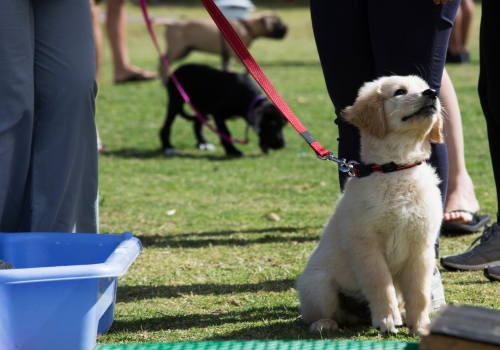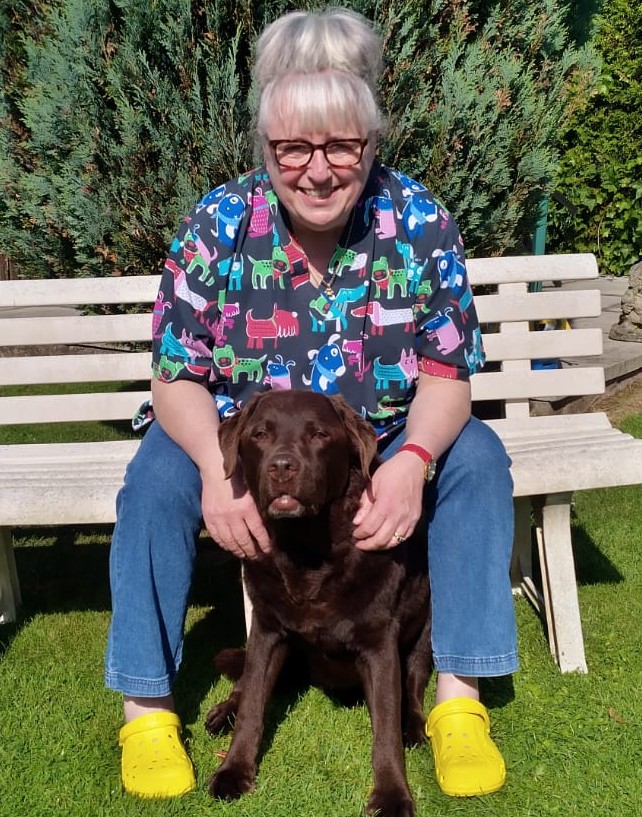Life skills for puppies
Within the first 8 – 12 weeks of your puppy’s life, ideally, you want to create positive experiences for your puppy around everything that is in his environment. i.e. people/children/animals/other dogs/animate and inanimate objects, vehicles, sounds etc.
A very simple way of ensuring positive encounters is with rewards or reinforcements of food.
NEVER force or rush your puppy into a situation which might overwhelm them! You will only do more harm than good and may damage trust that your puppy has already built up in you.
If your puppy does react fearfully towards something/someone or tries to avoid it or becomes over aroused, remove your puppy from this situation for a few moments and then attempt slowly reintroducing the something/someone.

This list is not exhaustive. But do not allow yourself to become overwhelmed by this list either. You should consider your and your puppy’s circumstances regarding the type of things that he needs socialisation with. E.g. if it is your hope that you would take your puppy camping at some point in his life, then make sure he has positive introductions to a tent as a puppy! Perhaps you have a short coated breed who will not require the services of a grooming parlour, so you can leave this bit of socialisation out.
However, be aware that the wider the variety of social interactions your puppy has in a relaxed and positive manner, the more chance he has of growing into a well balanced and confident adult. Good luck!

Meet Mary – our certified behaviourist
Our dog behaviour service is led by Mary Howat, who many of you may recognise from our Blairgowrie team!
Mary started working with Thrums in 2003, and has progressed to qualify as a Certified Canine Behaviourist and Certified Elite Fear Free Trainer. She also runs her own dog behaviour and training consultancy, K9INTUITION, taking veterinary referrals, behaviour consultations, one to one sessions with puppies and their owners and also providing advice for clients on choosing a puppy and before they have brought their puppy home.
She shares her life and home with her husband, their cat Harray and their new friend – Moose the chocolate Labrador.
Call our Kirriemuir team today to book an appointment on 01575 572 643.
